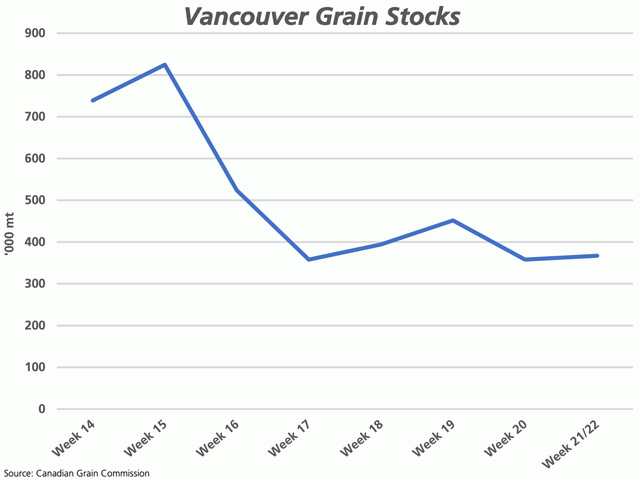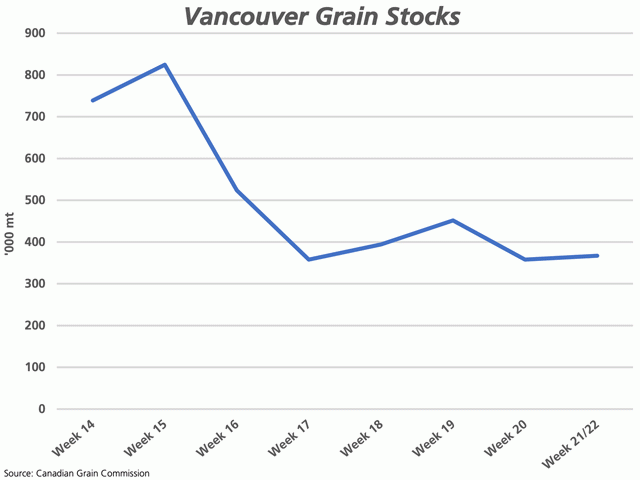Canada Markets
Vancouver Grain Stocks remain Tight
The Canadian Grain Commission reported Vancouver stocks at 366,900 metric tons at the end of week 22 or the week ending Jan. 2, still under pressure since the weather event that hit British Columbia in November while further compounded by extreme cold conditions that has contributed to slower movement from the prairies.
The latest Grain Statistics Weekly from the CGC shows Vancouver stocks close to the lowest seen during the past eight weeks, down 48.2% from the same week in 2020-21 and 42.3% below the three-year average. This volume represents only 28.8% of the Port of Vancouver storage capacity of 1.2755 million metric tons and 41% of the estimated working capacity as estimated by The Grain Marketing Program's Weekly Performance Update.
P[L1] D[0x0] M[300x250] OOP[F] ADUNIT[] T[]
Week 21/22 unloads for Vancouver averaged 197,900 mt during the two weeks, well above the 77,000-78,000 mt unloaded in weeks 16/17, but still well-below the four-week average of 499,400 mt from weeks 12-15, prior to the weather event.
Data released by the AG Transport Coalition shows the daily average of Vancouver unloads at a low 287 cars per day for week 23, up 60% from the previous week but still below the desirable pace.
Cold prairie weather is contributing to this performance in recent weeks. In week 22, the AG Transport Coalition reports that Canada's two major railways spotted only 43% of the cars wanted for loading during the week wanted. Demand for the largest grain shippers was pegged at 3,291 cars, the lowest weekly demand seen in 20 weeks, while the railways still struggled to spot 50% of the cars wanted during the week. Performance was even weaker when only the Vancouver corridor is considered, with CN spotting 37% of the Vancouver cars wanted for loading during the week, while CP spotted 40%, with demand within the Vancouver corridor accounting for 50% of the overall demand for this week.
The Daily Network Status as of Jan.9 indicates the Vancouver pipeline remains healthy with 5,000 cars on the line, including 700 west of the Alberta/British Columbia border. Week 24 demand for hopper cars is expected to fall by 50% from week 23 to the lowest level weekly level seen this crop year, which should allow for railways to catch up, helped by more favourable temperatures on the Prairies.
Cliff Jamieson can be reached at cliff.jamieson@dtn.com
Follow him on Twitter @Cliff Jamieson
(c) Copyright 2022 DTN, LLC. All rights reserved.






Comments
To comment, please Log In or Join our Community .